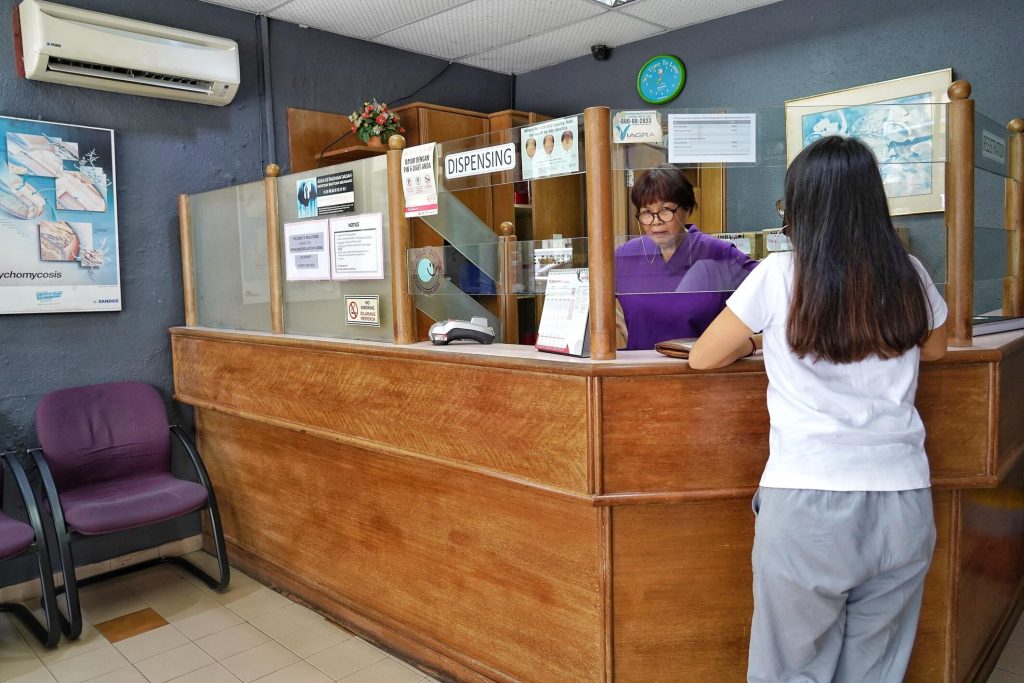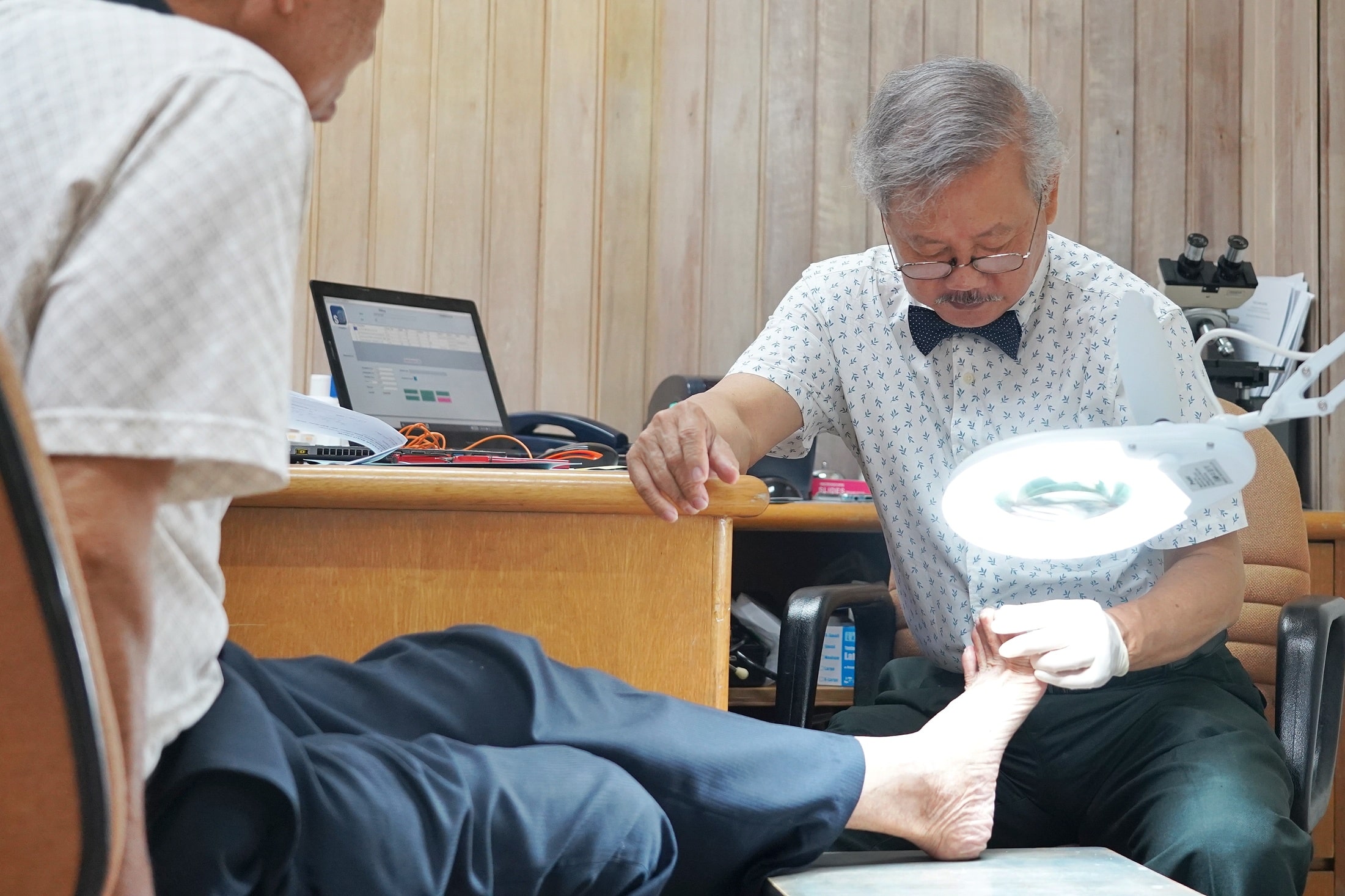KUALA LUMPUR, August 16 — The Malaysian Medical Association (MMA) has urged insurance companies to allow claims for procedures done at private general practitioner (GP) and specialist clinics.
MMA secretary-general Dr R. Arasu held that this would not only be good for patients but employers as well, as only 40 per cent of patients pay out of pocket (OOP) and the remaining 60 per cent have a third party covering their medical costs via employment health benefit, direct panel clinics, and so on.
Thus, the ability to claim for treatment provided by GPs and specialists in the private sector will increase the efficiency of the system, as it decongests hospitals and lowers costs.
At a forum organised by the Federation of Malaysian Business Associations (FMBA) and Eximius Medical Administration Solutions (e-MAS) last July 26 on rising health care costs, Dr Arasu said the MMA has been working with insurer AIA for the past two years.
AIA, he said, agreed with his suggestion to cover simple procedures like abdominal scans or for trigger finger at GP clinics.
“And today, there are a few hundred GPs who are doing these procedures in Malaysia,” Dr Arasu told the forum.
“They allow that to happen. We agreed to allow certification to be done. So this is one classic example whereby a trigger finger, a simple procedure that can be charged RM150, you may end up charging a few hundred ringgit at a hospital.
“And in fact, many of the specialists in the private sector, like orthopaedics, are more than happy because, for them, this is like treating cough, flu, and fever in private hospitals. They would like to do more. These are some of the examples where it can be done.”
Additionally, education provided by GPs in their role as health educators and chronic care managers is another method which would aid in cost reduction.
Dr Arasu said 80 per cent of the determinants of health are non-medical, and the remaining 20 per cent is medical. He held that out of the 80 per cent, 30 per cent involves lifestyle changes, 40 per cent is socio-economic, and the last 10 per cent is environmental factors.
Therefore, GPs can affect change in the 30 per cent by helping the public modify their lifestyle.
“GPs play an important role in terms of preventive and also chronic care management,” Dr Arasu said.
He noted the rise in non-communicable diseases (NCDs) in Malaysia like diabetes, hypertension, high cholesterol, as well as obesity. These chronic conditions lead to complications like kidney failure, stroke, and heart disease.
“So if we can prevent this, obviously the cost will reduce. That is how the GPs can play an important role in doing that. Preventive care – that comes from education and health literacy.”
In Malaysia, the prevalence of NCDs has been on the rise, with direct health care costs of cardiovascular diseases, diabetes, and cancer amounting to over RM9.65 billion a year.
While advocating GPs’ role in health education, Dr Arasu was quick to admonish the government’s continuous rhetoric of Malaysia’s low health literacy rates. The practising GP held that the definition of health literacy in Malaysia fluctuates based on an individual’s socioeconomic status.
According to Dr Arasu, the middle class and top 50 per cent of income earners would have good health literacy as they are wealthier and want to live longer, but when it comes to the people who are a part of the bottom 40 per cent (B40), Dr Arasu said that the issue was not one of education, but their inability to afford a healthy living.
“It’s not to say they do not know the importance of diet. It’s not to say they do not know the importance of taking medications regularly. It’s not to say they do not know drug adherence. All they know, but their number one priority in their life is the food on the table.”
In this situation, Dr Arasu said that GPs play the important role of counsellor to these groups of patients. And this multifaceted role of the GP is what situates GPs at the heart of the community, making it the responsibility of lawmakers to improve efficiency.
“80 per cent of GPs in this country are solo practitioners. And GP practice is practice. Almost 85 per cent of patients who visit a GP, they stay within 1.5 to 2 km radius. It is very important to understand that patient behaviour [living in an] urban area, in a semi-urban area, and rural area will be different.
“The GP who’s practising in that particular area – they’re very well versed within that particular community. So these are the resources that are available for the government, for the policymakers. How do they make the system more efficient?”
Separate Medication From Other Treatment Costs, Dispensing Separation Needed

Malaysian Pharmacists Society (MPS) president Amrahi Buang told the forum that the cost of medication must be decoupled from all other costs of treatment.
He also said patients ought to be given the right to choose whether they want generic or originator medication.
“Wherever they [patients] go, they must be given the choice, ‘You want the generic version or you want the originator?’ But I have to caution you, not necessarily the original is better than the generic. That is a wrong impression because we have due diligence on that. So it’s very important.
“In terms of the Health White Paper, the next step and so on and so forth, with all the discussion under the National Medicine Policy for Affordable Medicines, I think we need to sit down and discuss because it involves a lot of stakeholders.
“But I think, rightly, the patient must be aware of what is actually the cost. We have to separate the cost of the medicine from any other cost. That is very important.”
The Malaysian National Medicines Policy (MNMP) is a policy that defines and prioritises the medium and long-term goals set by the government for the pharmaceutical sector in Malaysia. The objective of the MNMP is to promote equitable access and rational use of safe, effective and affordable essential drugs of good quality.
On the topic of patient safety and medication, Amrahi argued that Malaysia ought to have separation of powers when it comes to the prescribing, dispensing, administering and monitoring of medication, especially when it comes to private GPs.
“We [pharmacists] are supposed to screen the prescription. See whether everything is right: the type of medicine, the strength of the medicine, the frequency of the medicine, as well as the duration of the thing,” Amrahi told CodeBlue after the event.
Amrahi said that although dispensing separation is practised in tertiary health care facilities like hospitals, primary care GP clinics do not follow this, as doctors there dispense the medicines they prescribe.
In other countries, medication is prescribed by doctors and dispensed separately at community pharmacies.
“So there is a separation of roles. The role between the doctors and the pharmacist. [The doctor] diagnoses, the pharmacist dispenses. So, that will ensure safety.”
Thus, the lack of check-and-balance when it comes to private GPs can be detrimental to patients’ health, Amrahi claimed.
This is especially so when taking into consideration Malaysians’ love of “medical services shopping”, which is particularly dangerous for those on long-term medication.








